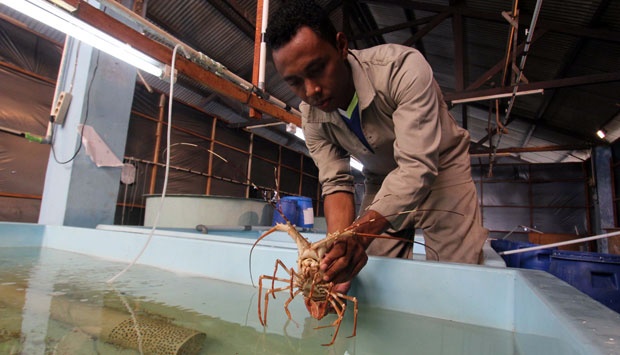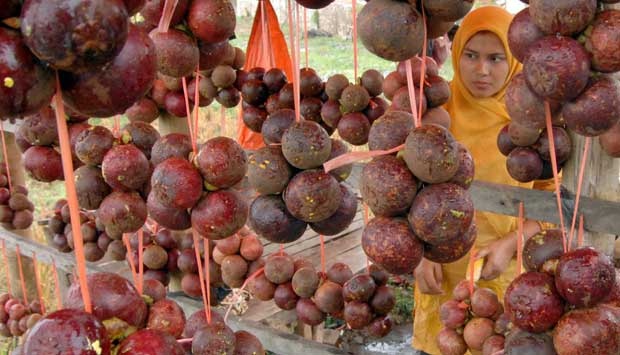Don't Export Lobster Hatchlings
Translator
Tempo.co
Editor
Laila Afifa
Sabtu, 11 Januari 2020 12:52 WIB

TEMPO.CO, Jakarta - The new Minister of Maritime and Fisheries plans to annul the ban on the export of lobster hatchlings. This could endanger the marine ecosystem and the entire commodity.
THE Minister of Maritime and Fisheries Edhy Prabowo should back down on his plan to open exports of lobster hatchlings. The plan can result in exploitation of the spawn, disrupt the ecosystem balance and be detrimental to lobster fishers.
The ban on lobster spawn exports was issued by Susi Pudjiastuti, Edhy’s predecessor, through a Regulation of Maritime and Fisheries Minister Number 56 of 2016. The ruling was made based on a decline in lobster production as a result of exports of millions of spawn to Vietnam, Singapore, and China. Susi also limited the size of lobsters to be caught from the ocean to a minimum weight of 200 grams with a carapace length of 8 centimeters. Another ban was against catching lobsters with eggs. As a result, Indonesian lobster exports increased from 1,017 tons worth US$11.3 million in 2016 to 1,286 tons (US$ 16 million) in 2017 and 1,243 tons (US$ 26.2 million) in 2018.
Edhy plans on annulling these rulings. His reasoning, the bans have given birth to smuggling of lobster spawn to places offshore, thus it would be better to legalize the practice and allow the state to derive taxation from it. This is an erroneous view showing the state to be in the submission of smugglers.
Another excuse is that thousands of lobster fishermen lost their livelihood. Minister Edhy obtained inputs from spawn exporters before he uttered his plan to annul the ban. Fishers obtain Rp10 thousand for each hatchling they catch. In the docks, the price goes up to Rp25,000-Rp35,000. In Vietnam, the price goes up to Rp139,000.
This foreign exchange is making President Joko Widodo lend support to Edhy’s plan. This is odd, bearing in mind since 2016, he had never stated diffidence against Minister Susi’s ban on the export. If he had objected to the ban of hatchling exports, the president could have asked his minister to scrap the regulation from the outset.
Selling spawn is obviously a short term solution. When fully grown, after about one and half to two years, a single lobster fetches more than Rp400,000. Rather than sending off hatchlings offshore, Minister Edhy can encourage fishers to breed larger lobsters. With that, spawn catchers can once again gain a livelihood and breeders no longer have to play hide and seek with the authorities such as during Minister Susi’s time. The government can also assist in lobster breeding by encouraging research to produce feed to replace small anchovies only produced seasonally. Bearing in mind 99.5 percent of world lobster production depends on the catch, the Maritime and Fisheries Ministry had better concentrate on regulating the open seas. Old policies can be modified so long as they are done in the same spirit, that of protecting the germplasm and the interests of fisherfolk. Limiting size should also be maintained. The same regulation is applied by Australia and the UK. Spawn catch can be conducted within limits for breeding in-country.
Indonesia can also adopt a closed seasonal policy to lobster catch, as applied by the Honduras and Nicaragua. Fishers in Maluku and West Papua Barat know this as their traditional sasi, a customary ban against fishing and hunting species for specific periods to ensure their population continuation.
Read the Complete Story in this Week's Edition of Tempo English Magazine




















